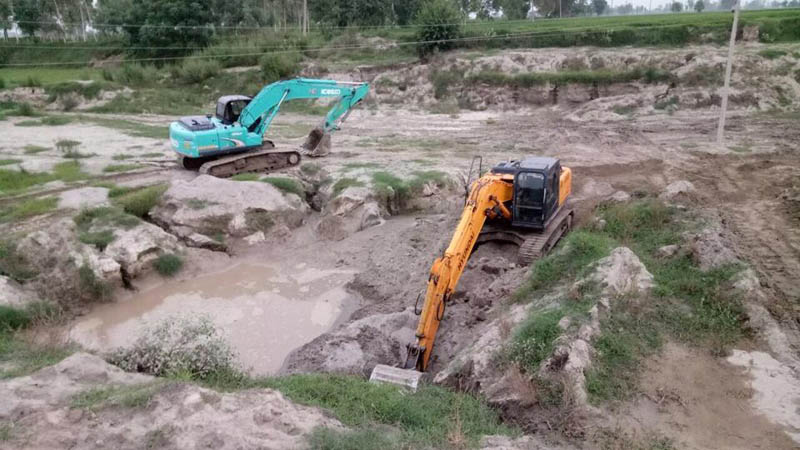The suo-moto cognizance taken by the NGT on illegal mining activities in Jammu and Kashmir is a significant step towards addressing an environmental crisis that has been festering for far too long. Illegal mining, particularly in the Samba and Kathua districts of Jammu and the Ganderbal district in Kashmir Valley, has reached alarming proportions. The NGT’s intervention, following the detailed exposé by Excelsior, highlights the dire consequences of unchecked mining activities. Rivers and water bodies, which are lifelines for local communities and ecosystems, are being ravaged by the insatiable greed of the mining mafia.
The environmental repercussions of illegal mining are severe and manifold. The depletion of water levels in rivers, as noted in Kathua and Samba districts, is a direct consequence of rampant mining. This not only affects the availability of water for domestic and agricultural use but also disrupts the ecological balance. The drying up of hand pumps, a critical source of water for many local communities, is a stark indicator of the crisis at hand. Moreover, the mining activities have led to significant soil erosion and the destruction of Kahcharai land, which is designated for grazing. The illegal extraction of soil from these lands exacerbates land degradation, leading to a loss of biodiversity and habitat for various species. The Environmental Protection Act of 1986 and the Sustainable Sand Mining Guidelines of 2016 clearly outline the measures to prevent such degradation, yet their implementation remains woefully inadequate.
One of the most alarming aspects of this illegal mining is the threat it poses to critical infrastructure. Reports of mining activities occurring dangerously close to the abutments of bridges are deeply concerning. The structural integrity of these bridges is at risk, posing a potential hazard to commuters and disrupting connectivity in the region. Several bridges have suffered extensive damage in the past. Equally distressing is the human toll. Over the past three years, 15 people have lost their lives in accidents involving vehicles transporting mining materials. These vehicles often carry loads far beyond their capacity, leading to frequent accidents. The lack of regulation and monitoring of these transport activities is a glaring oversight that needs immediate redressal.
The persistence of illegal mining activities despite strict Government measures points to significant lapses in enforcement and governance. The NGT has rightly issued notices to the MoEF, the CPCB, and the JKPCC, along with the Deputy Commissioners of Kathua, Samba and Ganderbal. Their responses will be critical in determining the extent of the lapses and formulating a comprehensive action plan.
Addressing this crisis requires a multi-pronged approach. Stringent monitoring and enforcement of the existing environmental laws and guidelines is the need of the hour. The use of technology, such as satellite surveillance and drone monitoring, can significantly enhance the ability to detect and prevent illegal mining activities. Subsequently, with digital proof, there must be a crackdown on the mining mafia. Local law enforcement agencies must take decisive action against the mafia. Accountabilities in this regard must be fixed in the affected districts. Additionally, there must be protection for whistleblowers and activists who raise their voices against illegal mining. Moreover, there needs to be a focus on sustainable mining practices. The implementation of the Sustainable Sand Mining Guidelines of 2016 must be revisited and reinforced. Sustainable mining not only mitigates environmental damage but also ensures that local communities can continue to benefit from natural resources without compromising the needs of future generations.
The NGT’s intervention marks a critical juncture in the battle against illegal mining in Jammu and Kashmir. The concerned authorities must take this opportunity to implement decisive measures that address the root causes of the problem. The protection of our natural resources, the safety of our infrastructure, and the well-being of our communities depend on our ability to act swiftly and effectively.
Trending Now
E-Paper


